Europe must be more aware of Chinese interference attempts: That is the urgent recommendation of experts at Merics. The researchers of the Berlin-based China institute have published a new study that shows how the People’s Republic is trying to steer global discourse to its advantage. Merics argues that we Europeans should be more wary of manipulation attempts.
Conversely, Europe’s reputation in China is also at risk. Because European actors are practically barred from public discourse in China, local media often paint a negative picture of Europe – without the opportunity to present their perspective. Julia Fiedler has summarized what can be learned from the Merics study.
From 2024, China will not receive any loans from the German state development bank KfW, as China.Table recently reported. The reason is that this is incompatible with “China’s de facto status as an industrialized country.” Frank Sieren analyzes under which – strict – conditions these loans have been granted in the past, and which opportunities to influence policy Germany may now be giving up in the process. This process could overshadow the Beijing visit of Jennifer Morgan, State Secretary and Special Envoy for International Climate Action.

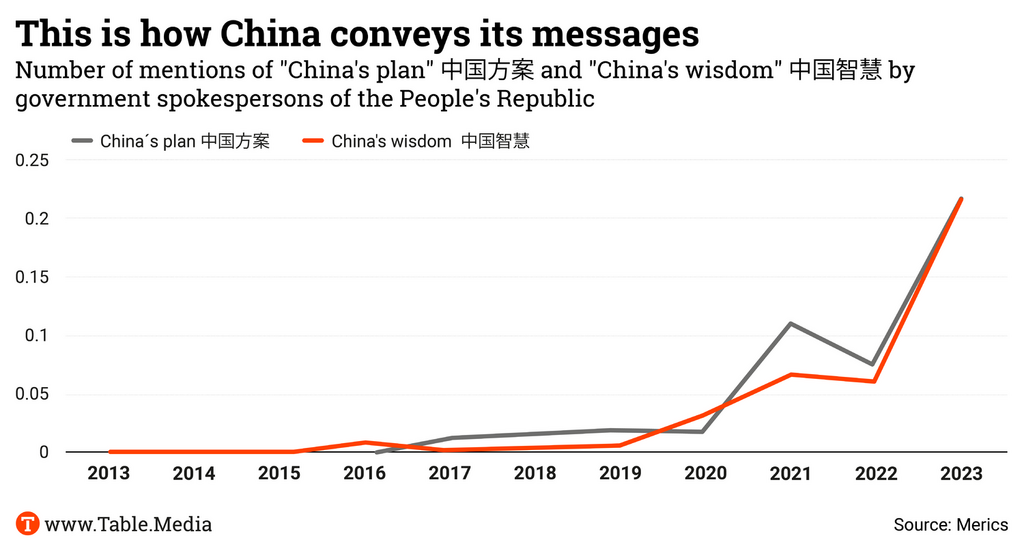
Dusty old government propaganda is a thing of the past – China’s leadership is pouring resources into self-marketing. And it has set itself the goal of controlling public discourse outside the country and improving its own image. After all, China’s image has significantly declined in the last few years. In a survey of 24 countries, including many in Europe, an average of 67 percent of people stated that they had a rather negative image of China.
However, Europe and the EU member states are strategically important for China – as economic partners and as a counterweight to the United States. A bad image in these countries is detrimental to China.
But China also influences the debate to position its own political and economic model as an alternative and to attack established concepts of democracy and human rights. Since 2020, China has increasingly attempted to portray its system as superior.
The Mercator Institute for China Studies in Berlin (Merics) has now presented a study in which the authors examine how the People’s Republic attempts to steer the global discourse in its favor. The study is available to Table.Media in advance.
They observed a clear change in the past few years. “In the first five years under Xi, control was mainly directed inwards, rooms for discourse were severely restricted,” says Katja Drinhausen, one of the study’s authors.
During this phase, the leadership mainly ensured that no information from the outside reached China that was deemed harmful by the leadership. By now, attention is focused more on the outside world. “Taking one’s own view of things and framing outwards is a new component to be considered in Xi Jinping’s second term.”
The study found:
The researchers feel that it is becoming increasingly difficult to obtain independent information about China. Attempts are made to prevent undesirable expressions of opinion through numerous methods, including laws such as the Hong Kong National Security Act. They are intended to exert pressure on interest groups. Chinese living overseas who express opinions on critical issues are pressured.
The contact of foreign scientists and journalists with interlocutors in China is considerably hindered, for example, by requiring complicated official approval procedures for interviews in advance. The fact that journalist visas are issued more selectively and that travel restrictions apply to some regions, such as Xinjiang, also prevents exchanges.
The study reports an increase in Internet access restrictions: The National Statistics Office, for example, has recently gained attention by taking data on topics such as youth unemployment figures offline. “As systematically and extensively as this has been happening in recent years, it’s a very new development,” says Drinhausen. “It determines what we know about China and can independently conclude.”
Furthermore, foreigners are not able to express themselves freely to the Chinese public. While Chinese actors have access to the information space overseas, European actors have hardly any opportunity to participate in Chinese public discourse. This also hurts Europe’s image. Undesirable views are slandered as fake news.
The researchers believe that Europe is currently not as much in China’s focus as the USA, Canada and Australia. These countries are much more affected by misinformation campaigns and attempts to influence elections.
Nevertheless, the Merics experts recommend that EU countries prepare for China to step up its interference even further. They suggest Europeans should network better and take joint action:
Since this asymmetric availability of information is a structural problem, policymakers should demand China to be more open.

On Wednesday, Jennifer Morgan, State Secretary at the German Foreign Office and Special Representative for International Climate Policy, will travel to Beijing to discuss opportunities in the joint fight against climate change. However, the former Greenpeace chief’s visit to Beijing is now overshadowed by KfW’s refusal to further provide loans to China.
As of 2024, Germany will no longer provide development loans for projects in China, as China.Table has previously learned from circles in the Chinese Ministry of Finance. Gisela Hammerschmidt, Head of Asia at the German Federal Ministry for Economic Cooperation and Development (BMZ), has now personally informed her counterparts in Beijing.
Loans from the state-owned German state-owned investment and development bank KfW went to China for projects for many years. For example, between 2013 and 2020, KfW granted a total of 90 promotional loans with a total volume of 3.09 billion euros for projects in the areas of environmental and climate action, vocational training and health.
The government justifies its change of course by arguing that KfW’s China business is incompatible with “China’s de facto status as an industrialized country.” In fact, the Chinese economy is already the largest economy in the world in terms of purchasing power, and the second largest in nominal terms behind the US.
However, there is another way of looking at it: Measured by per capita income, China is still an emerging country. At 21,500 US dollars, China has a lower per capita income than Bulgaria, on par with Mexico. Germany, by contrast, has a per capita income of 63,000 US dollars, and the USA even reaches 76,000 US dollars.
Until now, the BMZ counted the People’s Republic of China among its eight “Global Partners”, along with other emerging countries such as Brazil, Indonesia and South Africa: These are countries that are no longer extremely poor, but with which development cooperation is nevertheless important – because climate efforts, for example, have a particularly strong impact there.
KfW’s past loans went to companies based in China. In order to be eligible for these loans, companies had to meet strict conditions that are in the interest of, for example, Germany’s climate policy. For example, it funded a new 100-kilometer train connection from the port city of Tianjin, home to 14 million people, to Beijing’s new international airport in the suburb of Daxing. Beijing is home to almost 23 million people. KfW argued that the project helps to “reduce greenhouse gas emissions from private motorized transport and thus contribute to global climate action.”
A prerequisite for any contract award for the supply of goods and services by China was a public tender, which was carried out under international quality standards monitored by KfW. Furthermore, a recommendation by the Development Assistance Committee (DAC) of the Organisation for Economic Co-operation and Development (OECD) was required to release so-called public Official Development Assistance funds.
Although the loans were granted on behalf of the federal government, they did not involve funds from its state budget, i.e. not taxpayers’ money. The last time the German government provided the People’s Republic of China with funds from its budget for development cooperation was in 2009. Instead, it involved internationally financed loans that have to be repaid with interest, so-called development loans.
Thanks to its excellent reputation on the international capital market, KfW receives loans at favorable interest rates than individual companies. The international financial world is more than happy to lend money to the German state bank, which is backed by guarantees from the German federal government. After all, KfW has very good ratings. However, the federal guarantees were not needed for the Chinese loans. Defaults on repayments practically never happened with China.
KfW funded projects that set high environmental and social compatibility standards. Another important factor was that the projects included innovative elements and thus served as role models for China, as well as for other countries. This is because investments in China, the world’s largest greenhouse gas emitter, have a significant leverage effect.
There have also been cases where Chinese companies have used such financing to carry out projects in Africa, for example in Uganda. In this way, KfW could even indirectly ensure that German notions of development standards were enforced in Africa. The German government has now given up this constructive opportunity.
However, KfW’s lending to China has been criticized for some time. Since several ministries had to approve the decision to end lending, it is safe to assume that there is a broad consensus within the German government. The driving forces behind KfW’s exit from development funding were the Federal Ministry for Economic Affairs and Climate Action (BMWK) and the Federal Foreign Office (AA).
Both ministries are led by Green Party members Robert Habeck (BMWK) and Annalena Baerbock (AA), who, like the liberal Free Democratic Party (FDP), take a critical stance towards China. The Ministry of Finance led by FDP leader Christian Lindner also had to agree, as did the Federal Ministry for Economic Cooperation and Development (BMZ) under Social Democratic Party (SPD) Minister Svenja Schulze.
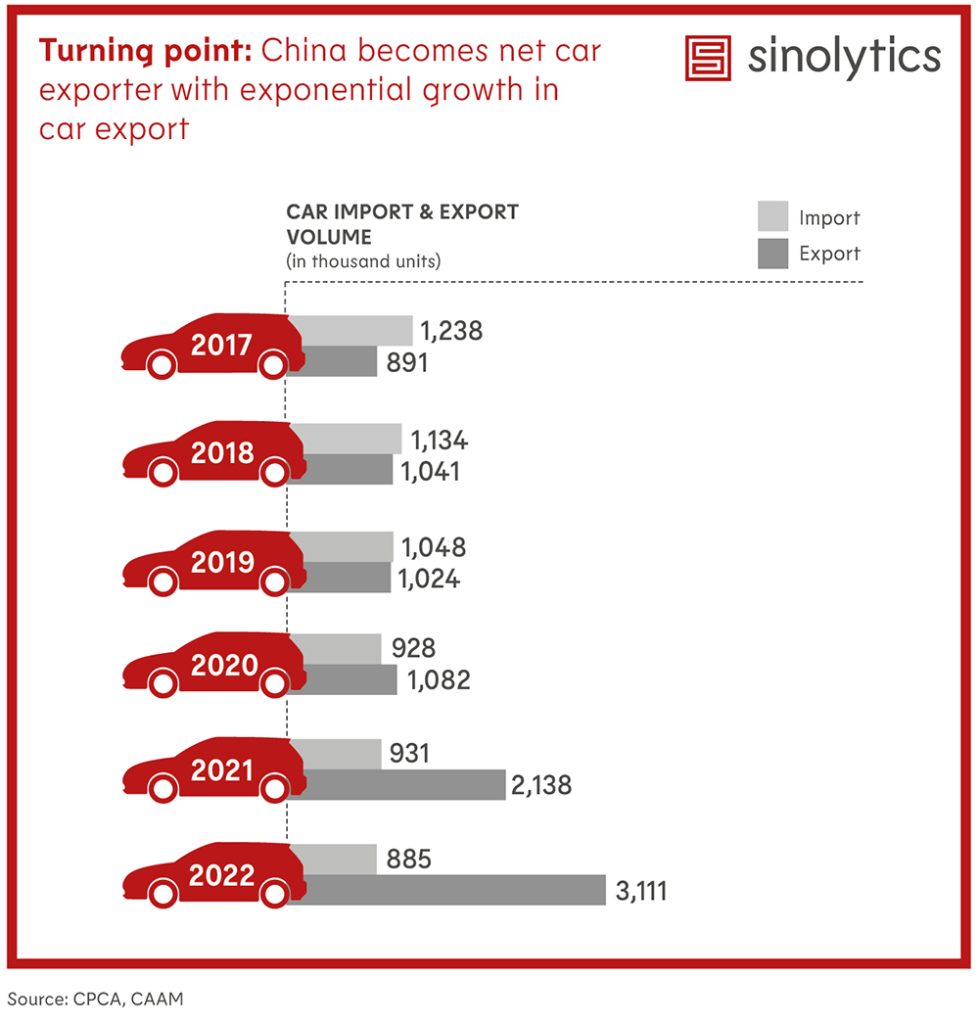
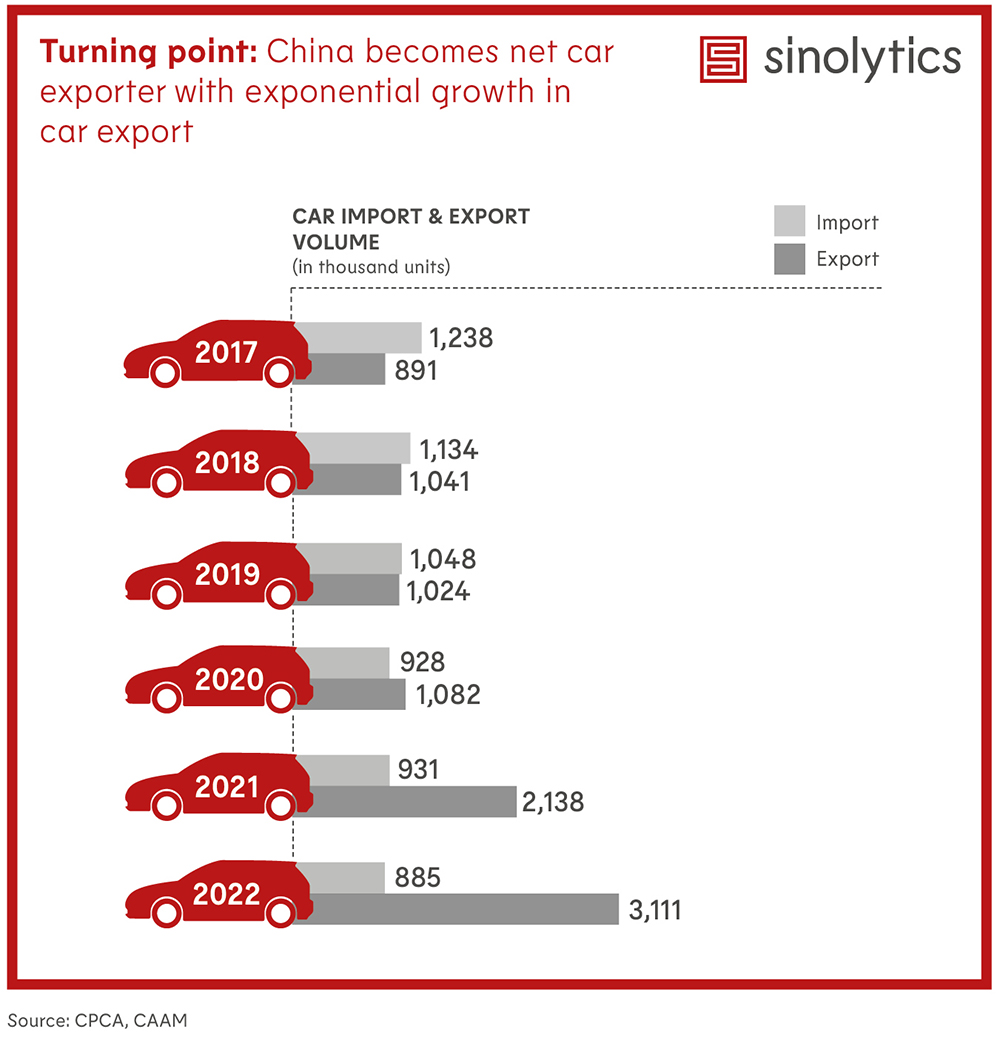
Sinolytics is a European research-based consultancy entirely focused on China. It advises European companies on their strategic orientation and concrete business activities in the People’s Republic.
US car maker Tesla is apparently caught in the midst of the debate over possible EU anti-subsidy measures against EV companies in China. As Bloomberg reported on Tuesday, citing sources familiar with the matter, Tesla’s Shanghai subsidiary appeared in Brussels’ preliminary investigation as one of the companies likely to have benefited from subsidies. Tesla has enjoyed benefits in China that other international automakers have had trouble obtaining – most notably, permission to build its own factory without the involvement of joint venture partners. In addition, Tesla has received tax breaks, preferential loans and other forms of support, according to Bloomberg.
At the conclusion of his China trip on Tuesday, EU Vice President and Trade Commissioner Valdis Dombrovskis stressed that there was “sufficient prima facie evidence” to justify the investigation into imports of battery-powered vehicles from the People’s Republic. Dombrovskis confirmed that the review could also hit non-Chinese manufacturers, including Tesla or Geely-owned Volvo.
Tesla has exported the Model 3 from its Shanghai factory since late 2020. In July 2021, the company described the gigafactory in Shanghai as its most important car export center. These cars also go to the EU. For instance, Bloomberg writes that Tesla sold 93,700 Chinese-made vehicles to Western Europe in the first seven months of this year, citing Schmidt Automotive Research. That is about 47 percent of total deliveries.
Tesla and other manufacturers declined to comment to Bloomberg. NIO chairman and co-founder William Li said last week he hoped governments would embrace openness rather than isolationism. China’s EV startups, such as Nio, have also received subsidies. The EU investigations are intended to clarify the extent of subsidies to Tesla, Nio, as well as BYD, SAIC and others – and whether those subsidies result in dumping prices.
EU Commission chief Ursula von der Leyen announced the investigations into market-distorting subsidies in China’s EV sector in a speech in mid-September. China’s Commerce Minister Wang Wentao now expressed his displeasure over the anti-subsidy investigations at his meeting with EU trade commissioner Dombrovskis. His ministry said Tuesday that “Wang Wentao expressed serious concern and strong dissatisfaction” over these plans. He said the countervailing duties brought into play by the EU are “a protectionist act that will affect China-EU green cooperation and the stability of the global automotive industry.” State-affiliated automakers’ association CAAM called on the EU to exercise restraint when enacting any countermeasures. ck/rtr
According to its own statements, China is negotiating with the United States about a visit by President Xi Jinping to the Asia-Pacific Summit (Apec) in San Francisco in November. At a press conference on Tuesday, Foreign Minister Wang Yi gave his usual cryptic response to a question about Xi’s attendance: “We are in communication with all parties and will make an official announcement in due course.” He said, “President Xi Jinping places great importance on multilateral diplomacy” and “China is a responsible country, and never absent from important multilateral forums.”
At the press conference, Wang unveiled a government foreign policy white paper based on Xi’s global initiatives. The 14,000-character paper “A Global Community of Shared Future,” calls for, among other things, abolishing protectionism and making large countries more responsible for peace and development in the world.
Wang Yi recently held talks lasting several hours with US National Security Advisor Jake Sullivan in Malta. The talks reportedly included a possible meeting between Xi and US President Joe Biden on the sidelines of the APEC summit. Xi’s absence at the recent G20 summit in India had fuelled speculation that the head of state might also decline a trip to the United States.
In parallel, plans for a tripartite summit between China, South Korea and Japan are taking shape. According to Bloomberg, high-ranking officials from all three countries agreed to hold a summit meeting of their leaders “at the earliest possible date.” According to Japanese media, a meeting as early as December is possible. China’s foreign office spokesman Wang Wenbin indirectly confirmed the plans. A communication about the summit would follow “in due course.” In addition, the three countries reportedly agreed on a foreign ministers’ meeting. ck
The US government has added ten more Chinese companies and one individual to its blacklist. As the business magazine Caixin reported on Tuesday, the reasons are mainly Washington’s accusations that the companies support Russia and Iran in producing military equipment. As an example, the magazine cites Asia Pacific Links, which allegedly assisted a blacklisted Russian company in manufacturing drones (UAVs) for Russian military intelligence. Six other Chinese companies are accused of providing components to an Iranian aircraft manufacturer for the production of Shahed combat drones deployed by Russia in Ukraine.
Companies on the so-called US “Entity List” are not allowed to acquire American technology – unless they obtain special government permits. China’s Ministry of Commerce protested the blacklisting of these companies and called on Washington to “immediately stop its unreasonable suppression of Chinese enterprises and individuals.” ck
According to a Reuters report, an executive of the Japanese securities firm Nomura is barred from leaving mainland China. Citing anonymous sources, The Financial Times reports that Wang Zhonghe is accused of having ties to a corruption scandal involving asset manager China Renaissance. This does not necessarily mean that Wang was arrested as a suspect. Anyone identified as a witness in such proceedings is not allowed to leave the country.
Wang works in Hong Kong. Before he joined Nomura, he worked for the major state-owned bank ICBC. One of the alleged masterminds of the embezzlement of funds at China Renaissance Holdings, Cong Lin, was one of Wang’s colleagues at the time. Among other things, China Renaissance brokered mergers in the Internet sector.
There is an ongoing anti-corruption campaign in the financial industry. Last year, authorities fined banks and investment firms 4,620 times, an increase of nearly one-fifth from the previous year. In the eyes of the leadership, anti-corruption campaigns often have a dual function. In many cases, they are genuinely about corruption and often hit the right people. At the same time, they serve to intimidate entire industries, party wings and social groups into compliance. fin
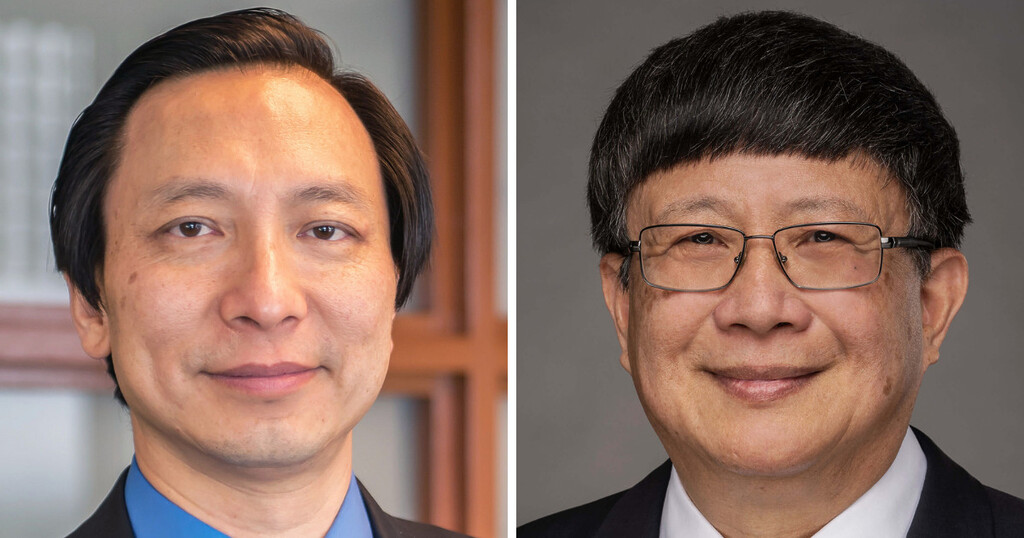
Bribery of public officials remains a major problem across the developing world and in some developed countries, too. Studies have repeatedly shown that graft impedes economic growth and development, prompting governments around the world to intensify their efforts to root out corruption. China’s anti-corruption drive stands out in this regard, having led to the arrest or indictment of hundreds of high-ranking officials, as well as more than a million lower-level government representatives, since 2013.
Corruption increases the cost of doing business, impeding economic efficiency and undermining fairness across the economy and society. But, given that bribery typically occurs under the table, estimating the extent and scope of illicit earnings is extremely difficult. One way to do this is to apply the permanent income theory, which establishes a link between household wealth and big-ticket consumer purchases.
In a forthcoming paper in Management Science, we and our co-authors employ this methodology to estimate Chinese government officials’ “unofficial” income. Analyzing data on home purchases and incomes in a major Chinese city between 2006 and 2013, we compare households with a government official to those without one. We then examine the relationship between the value of homes acquired and household wealth, accounting for factors like the official’s gender, age, and education level.
We find that, on average, Chinese officials’ so-called “grey income” amounts to 83 percent of their formal salary. Notably, this figure increases sharply with rank. For example, the unofficial earnings of low-level civil servants are just 27 percent of their official income. By contrast, for governmental division chiefs (zheng chu in Chinese administrative jargon), the ratio skyrockets to 172 percent. Strikingly, the off-the-books income of a director general in a government department (zheng ju) – on par with the mayor of a small or medium-size city in China’s administrative hierarchy – represents a whopping 424 percent of official compensation.
In principle, there can be two different types of corruption equilibria: one in which a few highly corrupt officials operate within an otherwise clean bureaucracy, and another in which corruption is widespread across the administrative system. Each of these scenarios affects the economy and society in distinct ways, requiring different anti-corruption strategies.
To understand which of these scenarios applies to China, we estimate the proportion of officials at specific administrative levels likely to have unofficial earnings. By comparing the value of home purchases in households with a government official to those without one, we find that 13 percent of the officials in our sample have an unofficial income. Importantly, this ratio also increases with rank. For example, our data suggest that roughly 8 percent of civil servants who are not in managerial roles receive significant undisclosed earnings, compared to 12 percent of low-level officials, 27 percent of the zheng chu, and 65 percent of the zheng ju.
Some have argued that public officials resort to bribes because their wages are low compared to what they could have earned in the private sector. To evaluate this claim, we consider factors such as education, work experience, age, and gender. Contrary to popular belief, we find no evidence that the government officials in our sample are underpaid given their education level and experience. In other words, inadequate government salaries are not the primary reason for the prevalence of bribery among Chinese bureaucrats.
The Chinese government’s sweeping anti-corruption campaign presents a unique opportunity to examine whether grey incomes stem from bribes. Our findings imply a significant correlation, as these unofficial earnings appear to decrease in areas where anti-corruption efforts have intensified, especially after the arrest or indictment of high-ranking local officials.
This suggests that the Chinese government’s anti-corruption measures have been at least somewhat effective. In addition to these efforts, introducing market-driven reforms, especially those that curtail government officials’ discretionary powers to issue licenses or allocate subsidies and other resources, could go a long way toward winning the fight against corruption.
Yongheng Deng is Professor and Distinguished Chair of Business, Chair of the Department of Real Estate and Urban Land Economics, and Director of the Global Real Estate Masters Program at the University of Wisconsin-Madison. Shang-Jin Wei, a former chief economist at the Asian Development Bank, is Professor of Finance and Economics at Columbia Business School and Columbia University’s School of International and Public Affairs.
Copyright: Project Syndicate, 2023.
www.project-syndicate.org
Kwok Joon-fung has been appointed Director of the Hong Kong Special Administrative Region Immigration Department. He replaces Au Ka-wang. Kwok, who has worked for the authority since 1989, has been its deputy director since 2022.
Zhao Sheng is China’s new ambassador to Afghanistan. The People’s Republic is one of a handful of countries – including Pakistan, Iran and Russia – that have maintained diplomatic representation in the country since the Taliban seized power in 2021.
Is something changing in your organization? Let us know at heads@table.media!
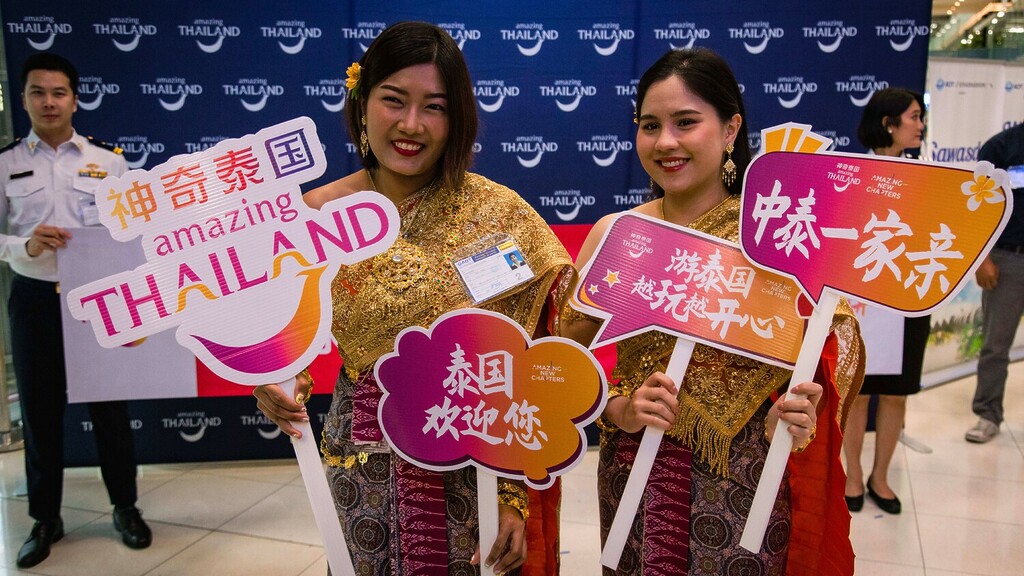
Welcome, Chinese! From September 25 to February 29, 2024, Chinese (and Kazakh) vacationers will not require a visa for Thailand. The Thai government hopes this will boost tourism revenue. The welcome ceremony at Bangkok’s Suvarnabhumi International Airport took place on the first day of the visa-free regime.
Europe must be more aware of Chinese interference attempts: That is the urgent recommendation of experts at Merics. The researchers of the Berlin-based China institute have published a new study that shows how the People’s Republic is trying to steer global discourse to its advantage. Merics argues that we Europeans should be more wary of manipulation attempts.
Conversely, Europe’s reputation in China is also at risk. Because European actors are practically barred from public discourse in China, local media often paint a negative picture of Europe – without the opportunity to present their perspective. Julia Fiedler has summarized what can be learned from the Merics study.
From 2024, China will not receive any loans from the German state development bank KfW, as China.Table recently reported. The reason is that this is incompatible with “China’s de facto status as an industrialized country.” Frank Sieren analyzes under which – strict – conditions these loans have been granted in the past, and which opportunities to influence policy Germany may now be giving up in the process. This process could overshadow the Beijing visit of Jennifer Morgan, State Secretary and Special Envoy for International Climate Action.


Dusty old government propaganda is a thing of the past – China’s leadership is pouring resources into self-marketing. And it has set itself the goal of controlling public discourse outside the country and improving its own image. After all, China’s image has significantly declined in the last few years. In a survey of 24 countries, including many in Europe, an average of 67 percent of people stated that they had a rather negative image of China.
However, Europe and the EU member states are strategically important for China – as economic partners and as a counterweight to the United States. A bad image in these countries is detrimental to China.
But China also influences the debate to position its own political and economic model as an alternative and to attack established concepts of democracy and human rights. Since 2020, China has increasingly attempted to portray its system as superior.
The Mercator Institute for China Studies in Berlin (Merics) has now presented a study in which the authors examine how the People’s Republic attempts to steer the global discourse in its favor. The study is available to Table.Media in advance.
They observed a clear change in the past few years. “In the first five years under Xi, control was mainly directed inwards, rooms for discourse were severely restricted,” says Katja Drinhausen, one of the study’s authors.
During this phase, the leadership mainly ensured that no information from the outside reached China that was deemed harmful by the leadership. By now, attention is focused more on the outside world. “Taking one’s own view of things and framing outwards is a new component to be considered in Xi Jinping’s second term.”
The study found:
The researchers feel that it is becoming increasingly difficult to obtain independent information about China. Attempts are made to prevent undesirable expressions of opinion through numerous methods, including laws such as the Hong Kong National Security Act. They are intended to exert pressure on interest groups. Chinese living overseas who express opinions on critical issues are pressured.
The contact of foreign scientists and journalists with interlocutors in China is considerably hindered, for example, by requiring complicated official approval procedures for interviews in advance. The fact that journalist visas are issued more selectively and that travel restrictions apply to some regions, such as Xinjiang, also prevents exchanges.
The study reports an increase in Internet access restrictions: The National Statistics Office, for example, has recently gained attention by taking data on topics such as youth unemployment figures offline. “As systematically and extensively as this has been happening in recent years, it’s a very new development,” says Drinhausen. “It determines what we know about China and can independently conclude.”
Furthermore, foreigners are not able to express themselves freely to the Chinese public. While Chinese actors have access to the information space overseas, European actors have hardly any opportunity to participate in Chinese public discourse. This also hurts Europe’s image. Undesirable views are slandered as fake news.
The researchers believe that Europe is currently not as much in China’s focus as the USA, Canada and Australia. These countries are much more affected by misinformation campaigns and attempts to influence elections.
Nevertheless, the Merics experts recommend that EU countries prepare for China to step up its interference even further. They suggest Europeans should network better and take joint action:
Since this asymmetric availability of information is a structural problem, policymakers should demand China to be more open.

On Wednesday, Jennifer Morgan, State Secretary at the German Foreign Office and Special Representative for International Climate Policy, will travel to Beijing to discuss opportunities in the joint fight against climate change. However, the former Greenpeace chief’s visit to Beijing is now overshadowed by KfW’s refusal to further provide loans to China.
As of 2024, Germany will no longer provide development loans for projects in China, as China.Table has previously learned from circles in the Chinese Ministry of Finance. Gisela Hammerschmidt, Head of Asia at the German Federal Ministry for Economic Cooperation and Development (BMZ), has now personally informed her counterparts in Beijing.
Loans from the state-owned German state-owned investment and development bank KfW went to China for projects for many years. For example, between 2013 and 2020, KfW granted a total of 90 promotional loans with a total volume of 3.09 billion euros for projects in the areas of environmental and climate action, vocational training and health.
The government justifies its change of course by arguing that KfW’s China business is incompatible with “China’s de facto status as an industrialized country.” In fact, the Chinese economy is already the largest economy in the world in terms of purchasing power, and the second largest in nominal terms behind the US.
However, there is another way of looking at it: Measured by per capita income, China is still an emerging country. At 21,500 US dollars, China has a lower per capita income than Bulgaria, on par with Mexico. Germany, by contrast, has a per capita income of 63,000 US dollars, and the USA even reaches 76,000 US dollars.
Until now, the BMZ counted the People’s Republic of China among its eight “Global Partners”, along with other emerging countries such as Brazil, Indonesia and South Africa: These are countries that are no longer extremely poor, but with which development cooperation is nevertheless important – because climate efforts, for example, have a particularly strong impact there.
KfW’s past loans went to companies based in China. In order to be eligible for these loans, companies had to meet strict conditions that are in the interest of, for example, Germany’s climate policy. For example, it funded a new 100-kilometer train connection from the port city of Tianjin, home to 14 million people, to Beijing’s new international airport in the suburb of Daxing. Beijing is home to almost 23 million people. KfW argued that the project helps to “reduce greenhouse gas emissions from private motorized transport and thus contribute to global climate action.”
A prerequisite for any contract award for the supply of goods and services by China was a public tender, which was carried out under international quality standards monitored by KfW. Furthermore, a recommendation by the Development Assistance Committee (DAC) of the Organisation for Economic Co-operation and Development (OECD) was required to release so-called public Official Development Assistance funds.
Although the loans were granted on behalf of the federal government, they did not involve funds from its state budget, i.e. not taxpayers’ money. The last time the German government provided the People’s Republic of China with funds from its budget for development cooperation was in 2009. Instead, it involved internationally financed loans that have to be repaid with interest, so-called development loans.
Thanks to its excellent reputation on the international capital market, KfW receives loans at favorable interest rates than individual companies. The international financial world is more than happy to lend money to the German state bank, which is backed by guarantees from the German federal government. After all, KfW has very good ratings. However, the federal guarantees were not needed for the Chinese loans. Defaults on repayments practically never happened with China.
KfW funded projects that set high environmental and social compatibility standards. Another important factor was that the projects included innovative elements and thus served as role models for China, as well as for other countries. This is because investments in China, the world’s largest greenhouse gas emitter, have a significant leverage effect.
There have also been cases where Chinese companies have used such financing to carry out projects in Africa, for example in Uganda. In this way, KfW could even indirectly ensure that German notions of development standards were enforced in Africa. The German government has now given up this constructive opportunity.
However, KfW’s lending to China has been criticized for some time. Since several ministries had to approve the decision to end lending, it is safe to assume that there is a broad consensus within the German government. The driving forces behind KfW’s exit from development funding were the Federal Ministry for Economic Affairs and Climate Action (BMWK) and the Federal Foreign Office (AA).
Both ministries are led by Green Party members Robert Habeck (BMWK) and Annalena Baerbock (AA), who, like the liberal Free Democratic Party (FDP), take a critical stance towards China. The Ministry of Finance led by FDP leader Christian Lindner also had to agree, as did the Federal Ministry for Economic Cooperation and Development (BMZ) under Social Democratic Party (SPD) Minister Svenja Schulze.


Sinolytics is a European research-based consultancy entirely focused on China. It advises European companies on their strategic orientation and concrete business activities in the People’s Republic.
US car maker Tesla is apparently caught in the midst of the debate over possible EU anti-subsidy measures against EV companies in China. As Bloomberg reported on Tuesday, citing sources familiar with the matter, Tesla’s Shanghai subsidiary appeared in Brussels’ preliminary investigation as one of the companies likely to have benefited from subsidies. Tesla has enjoyed benefits in China that other international automakers have had trouble obtaining – most notably, permission to build its own factory without the involvement of joint venture partners. In addition, Tesla has received tax breaks, preferential loans and other forms of support, according to Bloomberg.
At the conclusion of his China trip on Tuesday, EU Vice President and Trade Commissioner Valdis Dombrovskis stressed that there was “sufficient prima facie evidence” to justify the investigation into imports of battery-powered vehicles from the People’s Republic. Dombrovskis confirmed that the review could also hit non-Chinese manufacturers, including Tesla or Geely-owned Volvo.
Tesla has exported the Model 3 from its Shanghai factory since late 2020. In July 2021, the company described the gigafactory in Shanghai as its most important car export center. These cars also go to the EU. For instance, Bloomberg writes that Tesla sold 93,700 Chinese-made vehicles to Western Europe in the first seven months of this year, citing Schmidt Automotive Research. That is about 47 percent of total deliveries.
Tesla and other manufacturers declined to comment to Bloomberg. NIO chairman and co-founder William Li said last week he hoped governments would embrace openness rather than isolationism. China’s EV startups, such as Nio, have also received subsidies. The EU investigations are intended to clarify the extent of subsidies to Tesla, Nio, as well as BYD, SAIC and others – and whether those subsidies result in dumping prices.
EU Commission chief Ursula von der Leyen announced the investigations into market-distorting subsidies in China’s EV sector in a speech in mid-September. China’s Commerce Minister Wang Wentao now expressed his displeasure over the anti-subsidy investigations at his meeting with EU trade commissioner Dombrovskis. His ministry said Tuesday that “Wang Wentao expressed serious concern and strong dissatisfaction” over these plans. He said the countervailing duties brought into play by the EU are “a protectionist act that will affect China-EU green cooperation and the stability of the global automotive industry.” State-affiliated automakers’ association CAAM called on the EU to exercise restraint when enacting any countermeasures. ck/rtr
According to its own statements, China is negotiating with the United States about a visit by President Xi Jinping to the Asia-Pacific Summit (Apec) in San Francisco in November. At a press conference on Tuesday, Foreign Minister Wang Yi gave his usual cryptic response to a question about Xi’s attendance: “We are in communication with all parties and will make an official announcement in due course.” He said, “President Xi Jinping places great importance on multilateral diplomacy” and “China is a responsible country, and never absent from important multilateral forums.”
At the press conference, Wang unveiled a government foreign policy white paper based on Xi’s global initiatives. The 14,000-character paper “A Global Community of Shared Future,” calls for, among other things, abolishing protectionism and making large countries more responsible for peace and development in the world.
Wang Yi recently held talks lasting several hours with US National Security Advisor Jake Sullivan in Malta. The talks reportedly included a possible meeting between Xi and US President Joe Biden on the sidelines of the APEC summit. Xi’s absence at the recent G20 summit in India had fuelled speculation that the head of state might also decline a trip to the United States.
In parallel, plans for a tripartite summit between China, South Korea and Japan are taking shape. According to Bloomberg, high-ranking officials from all three countries agreed to hold a summit meeting of their leaders “at the earliest possible date.” According to Japanese media, a meeting as early as December is possible. China’s foreign office spokesman Wang Wenbin indirectly confirmed the plans. A communication about the summit would follow “in due course.” In addition, the three countries reportedly agreed on a foreign ministers’ meeting. ck
The US government has added ten more Chinese companies and one individual to its blacklist. As the business magazine Caixin reported on Tuesday, the reasons are mainly Washington’s accusations that the companies support Russia and Iran in producing military equipment. As an example, the magazine cites Asia Pacific Links, which allegedly assisted a blacklisted Russian company in manufacturing drones (UAVs) for Russian military intelligence. Six other Chinese companies are accused of providing components to an Iranian aircraft manufacturer for the production of Shahed combat drones deployed by Russia in Ukraine.
Companies on the so-called US “Entity List” are not allowed to acquire American technology – unless they obtain special government permits. China’s Ministry of Commerce protested the blacklisting of these companies and called on Washington to “immediately stop its unreasonable suppression of Chinese enterprises and individuals.” ck
According to a Reuters report, an executive of the Japanese securities firm Nomura is barred from leaving mainland China. Citing anonymous sources, The Financial Times reports that Wang Zhonghe is accused of having ties to a corruption scandal involving asset manager China Renaissance. This does not necessarily mean that Wang was arrested as a suspect. Anyone identified as a witness in such proceedings is not allowed to leave the country.
Wang works in Hong Kong. Before he joined Nomura, he worked for the major state-owned bank ICBC. One of the alleged masterminds of the embezzlement of funds at China Renaissance Holdings, Cong Lin, was one of Wang’s colleagues at the time. Among other things, China Renaissance brokered mergers in the Internet sector.
There is an ongoing anti-corruption campaign in the financial industry. Last year, authorities fined banks and investment firms 4,620 times, an increase of nearly one-fifth from the previous year. In the eyes of the leadership, anti-corruption campaigns often have a dual function. In many cases, they are genuinely about corruption and often hit the right people. At the same time, they serve to intimidate entire industries, party wings and social groups into compliance. fin

Bribery of public officials remains a major problem across the developing world and in some developed countries, too. Studies have repeatedly shown that graft impedes economic growth and development, prompting governments around the world to intensify their efforts to root out corruption. China’s anti-corruption drive stands out in this regard, having led to the arrest or indictment of hundreds of high-ranking officials, as well as more than a million lower-level government representatives, since 2013.
Corruption increases the cost of doing business, impeding economic efficiency and undermining fairness across the economy and society. But, given that bribery typically occurs under the table, estimating the extent and scope of illicit earnings is extremely difficult. One way to do this is to apply the permanent income theory, which establishes a link between household wealth and big-ticket consumer purchases.
In a forthcoming paper in Management Science, we and our co-authors employ this methodology to estimate Chinese government officials’ “unofficial” income. Analyzing data on home purchases and incomes in a major Chinese city between 2006 and 2013, we compare households with a government official to those without one. We then examine the relationship between the value of homes acquired and household wealth, accounting for factors like the official’s gender, age, and education level.
We find that, on average, Chinese officials’ so-called “grey income” amounts to 83 percent of their formal salary. Notably, this figure increases sharply with rank. For example, the unofficial earnings of low-level civil servants are just 27 percent of their official income. By contrast, for governmental division chiefs (zheng chu in Chinese administrative jargon), the ratio skyrockets to 172 percent. Strikingly, the off-the-books income of a director general in a government department (zheng ju) – on par with the mayor of a small or medium-size city in China’s administrative hierarchy – represents a whopping 424 percent of official compensation.
In principle, there can be two different types of corruption equilibria: one in which a few highly corrupt officials operate within an otherwise clean bureaucracy, and another in which corruption is widespread across the administrative system. Each of these scenarios affects the economy and society in distinct ways, requiring different anti-corruption strategies.
To understand which of these scenarios applies to China, we estimate the proportion of officials at specific administrative levels likely to have unofficial earnings. By comparing the value of home purchases in households with a government official to those without one, we find that 13 percent of the officials in our sample have an unofficial income. Importantly, this ratio also increases with rank. For example, our data suggest that roughly 8 percent of civil servants who are not in managerial roles receive significant undisclosed earnings, compared to 12 percent of low-level officials, 27 percent of the zheng chu, and 65 percent of the zheng ju.
Some have argued that public officials resort to bribes because their wages are low compared to what they could have earned in the private sector. To evaluate this claim, we consider factors such as education, work experience, age, and gender. Contrary to popular belief, we find no evidence that the government officials in our sample are underpaid given their education level and experience. In other words, inadequate government salaries are not the primary reason for the prevalence of bribery among Chinese bureaucrats.
The Chinese government’s sweeping anti-corruption campaign presents a unique opportunity to examine whether grey incomes stem from bribes. Our findings imply a significant correlation, as these unofficial earnings appear to decrease in areas where anti-corruption efforts have intensified, especially after the arrest or indictment of high-ranking local officials.
This suggests that the Chinese government’s anti-corruption measures have been at least somewhat effective. In addition to these efforts, introducing market-driven reforms, especially those that curtail government officials’ discretionary powers to issue licenses or allocate subsidies and other resources, could go a long way toward winning the fight against corruption.
Yongheng Deng is Professor and Distinguished Chair of Business, Chair of the Department of Real Estate and Urban Land Economics, and Director of the Global Real Estate Masters Program at the University of Wisconsin-Madison. Shang-Jin Wei, a former chief economist at the Asian Development Bank, is Professor of Finance and Economics at Columbia Business School and Columbia University’s School of International and Public Affairs.
Copyright: Project Syndicate, 2023.
www.project-syndicate.org
Kwok Joon-fung has been appointed Director of the Hong Kong Special Administrative Region Immigration Department. He replaces Au Ka-wang. Kwok, who has worked for the authority since 1989, has been its deputy director since 2022.
Zhao Sheng is China’s new ambassador to Afghanistan. The People’s Republic is one of a handful of countries – including Pakistan, Iran and Russia – that have maintained diplomatic representation in the country since the Taliban seized power in 2021.
Is something changing in your organization? Let us know at heads@table.media!

Welcome, Chinese! From September 25 to February 29, 2024, Chinese (and Kazakh) vacationers will not require a visa for Thailand. The Thai government hopes this will boost tourism revenue. The welcome ceremony at Bangkok’s Suvarnabhumi International Airport took place on the first day of the visa-free regime.
